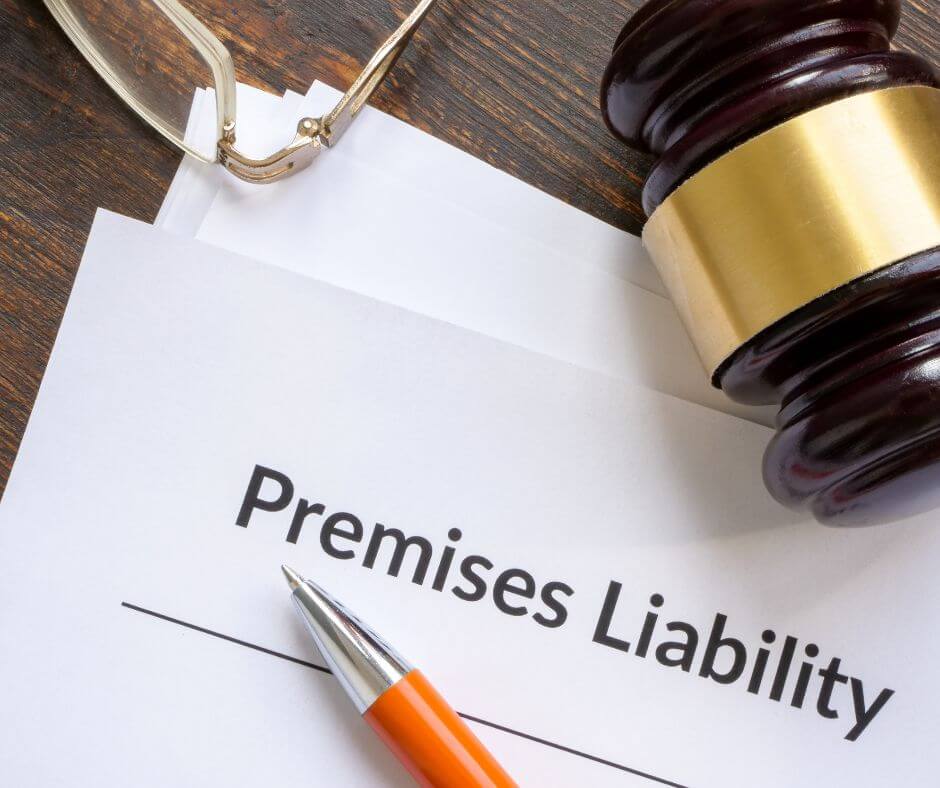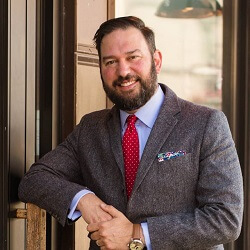
Premises liability refers to cases where property owners or occupiers may be liable for accidents that occur on their property due to their negligence.
In Georgia, as in other states, these cases are a way for individuals injured on someone else’s property due to unsafe conditions to seek compensation.
So, how do courts in Georgia usually determine who is responsible?
Here are four premises liability case examples that highlight the range of scenarios under which these laws apply.
Contact us online or give our experienced Atlanta premises liability lawyers a call at (770) 988-5252 to schedule your free case review today.
1. Slip, Trip, or Fall Accidents
One of the most common types of premises liability cases is slip and fall accidents. These occur when a person slips, trips, or falls as a result of a dangerous or hazardous condition on the property. Examples include wet floors without proper signage, icy walkways not adequately treated, broken railings, uneven flooring, or even inadequate lighting. Property owners have a duty to ensure their premises are safe for visitors, and failure to address such hazards can result in liability for any injuries that occur.
However, this comes with a caveat. The plaintiff has to show that the owner of the property had notice of the dangerous condition that caused the slip and fall injury. This is essential in proving that they negligently ignored the condition. For example, in Strauss v. City of Lilburn, the Georgia Court of Appeals found that even if a property owner doesn’t believe a condition is dangerous, they may still be liable if they know or should have known it exists.
2. Inadequate Security and Violent Crime
Property owners, especially those of commercial properties like shopping malls, parking lots, and apartment complexes, have a responsibility to provide a reasonably safe environment. This includes adequate security measures to prevent foreseeable crimes. If a person is assaulted, robbed, or even killed due to inadequate lighting, lack of security cameras, or failure to employ security personnel in areas known for criminal activity, the property owner could be held liable for any resulting injuries.
However, this is a rather recent development in Georgia law. In 2023, the Georgia Supreme Court heard arguments regarding the case of Ga. CVS Pharmacy, LLC v. Carmichael. The case involved a premises liability claim brought by James Carmichael, who was shot multiple times by an unknown assailant in a CVS parking lot in Atlanta in December 2012, resulting in severe long-term injuries.
Carmichael argued that CVS failed to take adequate security measures to protect the property. A Fulton County jury found in favor of Carmichael, awarding him an adjusted verdict of $42,750,000 against CVS. The defense appealed the decision, challenging the sufficiency of evidence regarding causation and superior knowledge of the danger. However, the Supreme Court supported the findings of the jury, specifically that increased lighting or a security guard presence could have deterred the attack.
3. Struck by an Object
Injuries also happen when an object that isn’t securely fastened or properly maintained strikes a property visitor. This situation usually happens in stores due to falling merchandise. However, a poorly secured light fixture in a hotel lobby or inadequately stored construction materials are also some common examples.
Generally, property owners and managers have a responsibility to ensure that objects on their premises pose no risk to visitors. The law usually refers to cases in this category as res ipsa loquitur, Latin for “the thing speaks for itself.” Essentially, this means that the incident that led to the injury wouldn’t normally happen without negligence taking place.
In other words, if a shelf falls on you, that wouldn’t normally happen unless someone was negligent in securing it. This is the same argument used in the case Kmart Corp. vs. Larsen, where the Georgia Court of Appeals affirmed that Kmart was responsible for not securing a shelf properly.
4. Accidental Drowning
Swimming pool accidents, particularly at homes or public facilities, often result in premises liability claims. Owners must adhere to safety regulations, including proper fencing, secure pool covers, and clear marking of pool depths. Accidents such as drowning or injuries from defective pool equipment may make the property owner, or even the manufacturer, liable if negligence in maintaining pool safety can be proven.
However, context is the most important factor when it comes to premises liability cases arising from accidental drowning. In Whitehead v. Green as the Parent of Green, the Georgia Court of Appeals had to determine whether the homeowners (the Whiteheads) and the pool company (White Pools, Inc.) were negligent in their duty of care towards Tamira Green, a 4-year-old who tragically drowned during a pool party.
The trial court initially found the homeowners and the manufacturer responsible based on expert witness testimony about the safety of the pool’s design. However, this ignored existing video evidence which suggested that Tamira’s step father failed to supervise her. In total, it took 13 minutes for partygoers to discover her body despite other adults being nearby.
Based on the evidence, the appellate court found that the homeowners and the pool company did not have a legal duty to warn about the pool’s features because those features weren’t hidden dangers. Additionally, there wasn’t any evidence that the homeowners or the pool company acted in a way that was willfully or wantonly negligent. As a result, the court reversed the trial court’s decision, indicating that the homeowners and the pool company weren’t liable for negligence in this tragic incident.
These Premises Liability Case Examples Are Just the Tip of the Iceberg
The examples of premises liability cases in Georgia mentioned above show the complex nature of this area of law. However, it’s important to understand that these instances represent only a fraction of the potential scenarios under premises liability.
Each case brings its own unique set of circumstances, considerations, and challenges. Due to the variability and complexity in these cases, consulting with an experienced attorney is not just advisable, but essential for anyone who believes they have a premises liability claim.
Got Questions About a Potential Premises Liability Claim? MG Law Is Here to Assist
If you have an injury after an incident on someone else’s property, don’t try to fight it alone. At MG Law, our Georgia premises liability attorneys understand just how challenging these cases are.
We know that not all cases are like the premises liability case examples we covered in this post.
That’s why we use a personalized approach with every client. We’re here to guide you through every step, ensuring your rights are fully protected.
To schedule a free case review, fill out our online form or give us a call at (770) 988-5252 today.

